Conversation
Code Societies, A Speculative Oral History: On Spirituality and Fellowship
3/9/2020
Neta Bomani
This is the second installment in a series published with Code Societies, a three-week intensive session in January at School for Poetic Computation in New York City (you can read the first, on the cybernetics of reproduction, here). Now in its third year, Code Societies explores how different platforms and processes—including algorithms, surveillance, social media, infrastructure, and interface—yield distinct modes of seeing, thinking, and feeling, and reinforce existing systems of power. It’s organized by Melanie Hoff, with Neta Bomani and Emma Rae Norton. Each year brings different possibilities, modalities, and configurations, with an impressive lineup of students and teachers from multidisciplinary backgrounds spanning computation, race-studies, performance, and cybernetics, to name a few. Code Societies culminates in a project showcase where students and friends gather to reflect on an intensive three weeks. It also has the rare effect of drawing the outside in, so that even as the cohort is selected each year through a competitive application process, the syllabi and class materials are openly accessible, and the session is carefully documented. Even those outside of the cohort can, and do, eagerly follow along.
This year, Neta also organized an extensive oral history project, which brings the session’s teachers, students, and organizers together to converse and respond to the ideas presented in various classes under the theme of a speculative present and future tense hidden within the prompt of the Code Societies title: code the societies in which you want to live. You can listen to all of the oral histories in full on the Code Societies website, and read excerpts in a printed zine, which was available at the showcase thanks to designer Ritu Ghiya and publishers Irrelevant Press and Lucky Risograph. We’re also running a selection of them on the blog, including this conversation between Andreas Jonathan, Eliseo Rivera and Tina Nguyen on forming communities, finding spirituality and fellowship apart from dogma, and relationships as technology.
This interview was originally transcribed by Shea Fitzpatrick, and the excerpt has been shortened, edited, and annotated for clarity and to honor the intentions of the narrators. Listen to this interview in full on Soundcloud or below.
My name is Neta Bomani and I’m at the School for Poetic Computation at 155 Bank Street in New York City, New York. I’m here with Tina, Eliseo, and Andreas. We’re doing an oral history project for Code Societies 2020 and I wanted to give the people I’m with the opportunity to introduce themselves.
Eliseo: My name is Eliseo. I teach for a living. [I’m a] human, maker, thinker.
Tina: My name is Tina Nguyen. I’ve been introducing myself as a designer, but in many lives before I would have considered myself an orator, a consultant, a creator, and most recently I’ve been identifying as mentor.
Andreas: My name is Andreas Jonathan. I am a budding librarian. I like what Kameelah [Janan Rasheed] had to say a couple of days ago about [identifying as] a learner. I’m a researcher and writer.
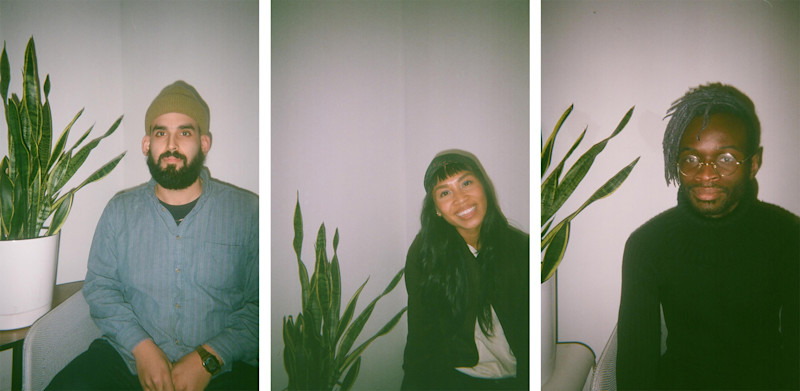
Can you describe a spiritual experience that you’ve had?
Tina: I feel like I’ve been having spiritual experiences everyday. A large part of that came because I started introducing tarot into my life and reading my horoscope, and just believing in something bigger than myself. I love pulling a card for myself everyday and seeing what the universe has in store for me, and what my interpretation is of what the universe has in store for me, and even seeing the spaces where I disagree. I think that has been spiritual in reaffirming my own path and not necessarily listening to the universe, ‘cause there’ve definitely been times where I—based on reading my monthly horoscope or something—am expecting things to go a certain way and I realize I end up feeling frustrated or angry at the universe for it not unfolding the way I thought it was going to unfold. Maybe that’s what spirit is, it’s something beyond you and incomprehensible, and I’m getting reminded of that everyday.
Eliseo: I just talked to my sister this morning…and she was like, “How’s class?” and I was like “Yo, it’s like church here.” I come from the Hispanic church, Pentecostal upbringing. We had a lot of time for fellowship and knowing each other and we all felt safe around each other. We would go on these retreats, which felt just like hanging out with family for an extended period of time. But then you put God in the mix and there are all these many different types of spiritual experiences that felt a certain way, but one of the key things is spending time every single day being immersed in a specific mode of thought and…[having] the same type of experience…Now it’s in the ‘secular’ but I’m getting the same type of energy and feeling and learning that is more in line with what my body is feeling, my spirit has been feeling, my mind has been feeling, and it’s just been building like a snowball.
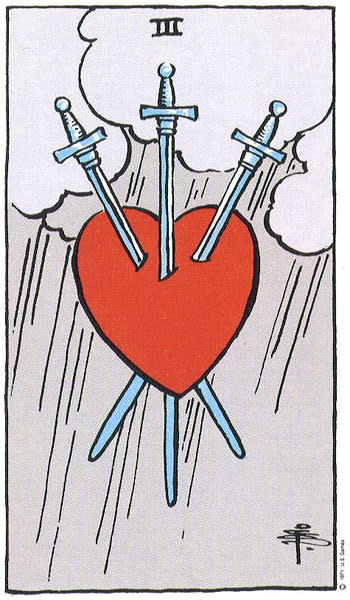
Andreas: I’m really resonating with this mode of self reflection within the tarot, within astrology that you’re speaking to, Tina. I’ve recently also started pulling cards and trying to learn the tarot as well. I’ve been into astrology for a little bit and I’m trying to take that practice more seriously.
I also really resonate with thinking about fellowship, particularly within religious experiences, and particularly coming from a Pentecostal background. I definitely experienced a break between the spaces that had acted as my only spiritual nodes, and then having a period of time in my life where I thought I can’t be here anymore, I don’t know if I can be accepted fully as myself here. Within the last year, I’ve been finding all of these ways of coming back to that spiritual self.
The word you used secular is so interesting as well, because I think in particular when you grow up with a particular experience of the church, you’re sort of taught that the only space where you can have this kind of experience or this type of introspection is within the church. I’m having all of these moments, these little synchronicities [at Code Societies] of like, Oh, this is also a kind of prayer. This is also a kind of dialogue with myself. This is also a kind of dialogue with my community, and all of these things can be spiritual in the same way that bible group is.
Tina: My mom raised me and my brothers Catholic, but my dad is and was Buddhist, and so when I grew up I always did the ritualistic things that my mom had us do–got communion, got baptized, and went to church every Sunday–but I was always curious why my dad didn’t go. It just made me aware from a young age that you could choose. You could choose for yourself what your spirituality was. I think that was part of the reason why I chose not to be a practicing Catholic. I realized in my adult life I’m actually gravitating more towards Buddhism–the choice that was there all along but was never forced upon me. It’s a really lovely type of connection to the same root as my dad.
Eliseo: One thing that’s really resonated with me in this time we’ve spent together is the idea of fluidity, and just being in flux, and that being 100% okay. In fact, that’s probably the most healthy way of being, right? How do we care for each other? How do we find safe spaces? How do we promote things that are healthy and not harmful? That can only happen in conversation with each other, and really challenging and complicating what our worldview is.
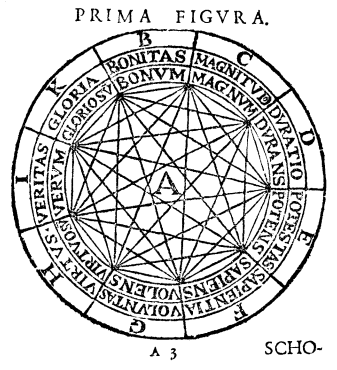
Andreas: Something that comes up for me, particularly when also thinking about [Tina’s] initial statement about the tarot and about what happens when it feels as if the universe didn’t unveil itself in a way that you thought that it was going to….whenever I’m talking with ‘skeptics,’—and I am fully in support of skepticism, low key, I think that’s also a kind of spiritual practice—I’m often trying to tell people that I don’t see things like horoscopes or tarot as something that’s supposed to be predictive. For me it’s very much a way of holding up a mirror and giving yourself a chance to look at your actions….it’s a moment of reflection. It’s about a dialogue with yourself. So it’s not about what the cards are telling me to do, or what changes I need to make, it’s about creating a space where I can tell myself what changes I need to make in my life, what things that I need to notice more or pay more attention to. In that way I feel it’s very much a kind of interface, but not in the technological sense. And I wonder what opportunities that opens up for relationships we can have in and around technology. What’s a prayerful, reflective relationship with technology that we can have, potentially?
Tina: When we were talking about our experiences, we [were talking about how we] each have our own choice in how we choose to pursue what spirituality means to us in our life. I was wondering whether or not spirituality is now a totally individual thing? Is the zeitgeist essentially the dissipation of these cultural religious institutions? Do young people no longer find meaning in that? I wonder if people are now moving towards an individual type of spirituality and what that might mean for connection between people. Because we’re all out here having clearly spiritual experiences, and we’re in a shared space. But is that space spiritual?
Eliseo: This is something that I think about often, because I come from a deep-rooted practice of being in a community with people that are thinking and practicing the same thing: Church. On top of that, I’m a pastor’s kid, which is even more intense. In my adult life I very much go back and forth between thinking that I need to have a community that’s thinking the same way, and [has the] same background as me, and thinking that it's a necessity. My church group growing up were Puerto Ricans, immigrants, Dominicans, people like me. [We were] creating a space where we didn’t have anywhere else. There was so much safety, so much security in that, so much love. But also a lot of institutional, bad things—violence, spiritual abuse, a lot of stuff that was unintentional, but it happened. Because of this thing that’s written down. You know, in the church you’re treated like that’s the 100% truth, the Bible. For me to say that it’s not, and to tell my dad that it wasn’t, that was huge. But for me it’s the truth. And that complicates things. That now changes the dynamic of what a church is. It kind of shuts everything down.
Andreas: I’m very curious about how we build fellowship across difference, and I worry about where we build fellowship based on sameness. I think that when we do the latter, acceptance, or love, or care always comes with codes of conduct attached. It always comes with a limit. We are here, we are together, but there’s a list of practices, and if you don’t abide by those things, or you exist outside those things, then we don’t know how to deal with you. I’m resonating with so much of what you’re saying, Eliseo, [because] I grew up in the church. The demographics might have been a bit different—mine was primarily West Africans—but that became a really important space. For a large part of my life, the church was also the community center for any kind of connection to my West African heritage. And when I started considering [leaving], that decision to leave was also a decision to leave my main node of connection to my heritage….I had to sit with all of the good that came out of that space for me, and the care, and the people who were pivotal in my life growing up who were all centered in that space, and at the same time this question of, okay, but if you knew me fully–
Eliseo: That part.
Andreas: —is that care still there? If you saw me, if I could be vulnerable and honest with who I am fully here, would you still hold me in the same way? That was a different answer for different people. And it ended up being a better decision at the time to say, I’m going to have to go see if I can form new networks elsewhere.
But what’s been great in the last couple of years… is this very interesting ‘comeback’ of spirituality. Whether that means people in our age group returning to church or temple or whichever sort of spiritual center they grew up in, or creating their own, or mixing practices. Or people who may be drawing from ‘paganism’ or ‘witchcraft.’ I think it’s a political practice as well, it’s something that speaks to the question of how do we build communities?
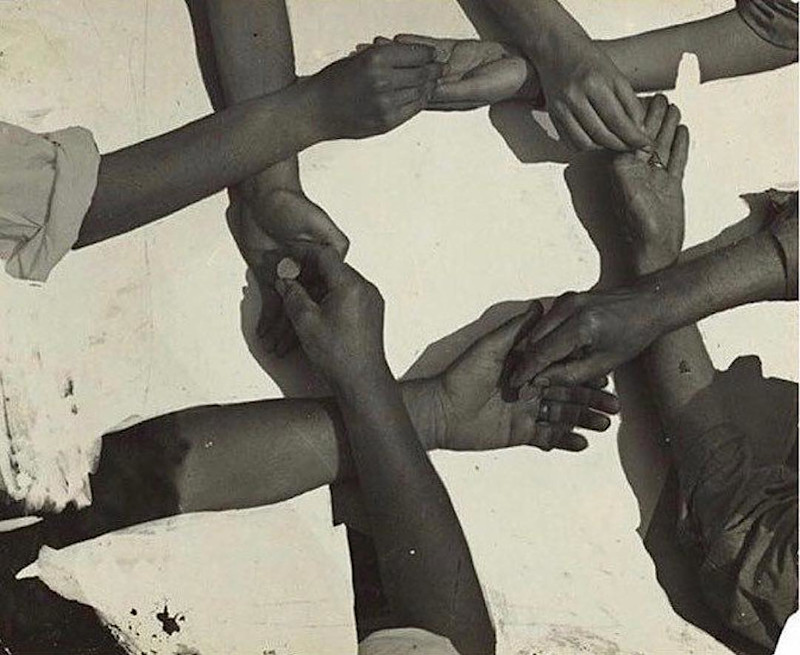
Eliseo: The church also provided physical material things that we needed. The church provided jobs. Someone knew someone else to get the job at the car dealership, or if you needed a car fixed and didn’t know where to go, there was someone in the church that knew how to fix cars and you’d get it on the cheap. Yet there were these rules and these expectations that were debilitating for me. And made me go to a point of… [needing] to separate myself and figure things out, which was a complete dismantling of my identity and sent me into a deep depression. Church community is not just the “church.” People know each other, that’s why it’s deep.
Andreas: There’s a way in which a lot of the networks that develop in these spaces practice the politics that we preach. Like what you were saying about material help… this person has just had a baby, and we’re raising money for them, you know? This person just lost their job, does anyone know of any openings? This person needs a drivers license, where can they go? [laughs] Just very little, “help you get through the day” kinds of things, and the feeling of having multiple caregivers. What I would love to imagine us getting to is decoupling that from structures that say, yes, but we’re doing all of that so that we can build a prosperity gospel because we’re all trying to be capitalists. Or, We’re doing this and remember that being queer is of the devil. These very positive practices and positive networks don’t have to be coupled with these other really toxic things to take place. That’s kind of a radical thought in and of itself.
Tina: We’re the new radicalists.
Andreas: Yes.
Tina: My church was a Vietnamese church that was Catholic but also taught Vietnamese language. From a young age, my brothers and I kind of ended up sticking together and rebelling, and refusing to learn Vietnamese because we were too cool and wanted to be American. I think a lot of that insecurity came because my mom was really insecure about her capability to speak English. And so it was passed on to us, of wanting to be really, really American, and thus kind of shunning Vietnamese traditions. For us, that was both the Vietnamese school and this Vietnamese church. So there was definitely this–similar to what I’m seeing in both of you–this drive to find our own individuality, our own idea of American individuality, which inherently meant leaving the communal space and finding individualism. But now I’m in this stage of my life where I feel a return to myself. Or, that’s a quote that I saw on this trolley ride in Vietnam, actually.
Andreas: Wow, okay!
Tina: The trolley ride in Vietnam was called ‘a return to yourself.’ And the whole idea there is, maybe you already know the things that you’re seeking, and you just need to live through whatever it is in order to know what to discard and what to keep. Which is exactly what you were referring to, Andreas, about discarding all of the structures that just weren’t working for us, that didn’t actually allow us to be who we really are. Now that I’m older, I find myself wanting to learn Vietnamese! I downloaded Duolingo [laughs]. It’s a painfully funny story, I think.
What do you all think the necessary parts to keep are?
Tina: Well, I definitely want to have children and raise them in a community. I love that idea of being raised not by just one singular entity, but by a whole community. I didn’t actually experience that, so when I think of how it could be, I think that is a great alternative.
Eliseo: Yeah. It’s a tough time for me to figure out what to do with Jesus and the locus of the Christian church, you know? Because [for a lot of it], it’s like yo, this makes a lot of sense. The idea of what love is and what that looks like is the same stuff that we’re talking about everyday here. It’s the same. But that specific type of understanding of the Bible and Christianity is so white and western and—for me as a Puerto Rican—only been given to us through colonialism. It’s like, Spaniards coming and imposing this thing, and now we practice it in my family and know it as truth….It’s kind of difficult to decide sometimes what to hold and what —I mean, it’s easy for me to think about, but then what are the ramifications of that as a person who still loves their family, still wants to be a part of that. How do you discuss that? How do you have dialogue about that in a way that they–my family–sees me fully? If I tell my dad this is who I am, and I poke holes in his foundation, and that foundation crumbles, that’s fifty years plus of being a certain way.
Tina: I mean... can you lovingly poke holes? You know?
Andreas: [laughs]
Tina: My mom did that to me all the time, [saying things] like, I know you’re grown, I know it’s your own choice whether or not you should go to the church—you should go, you should pray, but you don’t have to. And I wonder if you can kind of do that for your parents, like, Hey, I know you’ve felt this all your life, but there are some real problematic things that you don’t have to believe in. Or that they don’t have to opt into this institutional thinking. I don’t know, do you think they’d be willing to have that conversation with you?
Eliseo: It’s super tricky knowing who my parents are, how I’ve experienced certain things in that pushback, in saying This is who I am. When you believe in a thing so hard, it’s life or death. And this idea of the afterlife for them, and whether people go to a place of everlasting life and greatness and happiness and love, or the other place that’s nothing but torment, and you believe that to be the truth… It’s hard to lovingly and slowly say there is an alternative way. I’m trying little by little, but it’s a process.
Andreas: Yeah. I appreciate the difficulty in that. There’s [also] a guilt that can come in, right? It’s not just, like, I’m poking holes in the foundation, but I, your child, who you sacrificed for [laughter], am poking holes in the foundation of your entire world.
Eliseo: They’re survivors, that’s the thing. My parents are survivors. They just try to make it through, and they did. They provided a house for us and then for me to say, Nah, y’all did it wrong spiritually-wise. No, I can’t [laughs].
Andreas: I think there’s something [to the idea of] this being a continuum process. I came out in one sense, I think seven or so years ago, to my father, which was not who I thought I was going to have the first conversation with. And it took him years to really process that and get to the point where he is now. Pretty recently, I don’t remember how the conversation began, but the TL;DR was [that my dad was] like, I accept that my son is gay and I love him for it. And it’s like, Dad thanks, but in my head I’m like, what even is the binary? [laughter] I’m really deep in gender trouble right now... It’s taken him years to get to where he is now and it’s taken me years to get to where I am now, and that journey is still not even done yet. I don’t know where I will be seven years from now and I don’t know where he will be seven years from now. But [we’re] just very slowly trying to hold each other in that. And that does not always work, and it does not always work well, and sometimes it is very painful.
I’d like to invite us seven years into the future. What’s happening?
Eliseo: [sighs]
Andreas: We’re underwater.
Tina: No !!
[laughter]
Eliseo: Starting basic, my parents are mad accepting about things I’m thinking about, and I can talk about gender issues, I can talk about using the they pronoun, I can talk about painting my nails without it being a thing, you know, I can talk about actual sexual relationships with my family. Extended, too—not just my parents, but my cousins and aunts, my uncles...I don’t need a new car, I don’t need a new app, I don’t need any of that. Relationships—at the end of the day, that’s what Code Societies is about. How do we be in spaces with each other as humans, as physical bodies?
Tina: ...I’ve been thinking about opening the door bigger and wider. I’m inviting people into my world, and for me, that has been looking a lot more like being more available, accessible, public on digital spaces. So for me, that question of where will I be in seven years, it’s like–whatever it is, wherever I’m at, I’m definitely 200% Tina. [laughs] Just like, everywhere more.
Eliseo: Just like, loud. [laughs]
Tina: Maybe there’s a mini-me, who knows? But I feel like my journey in life has been about that mental acceptance of my inner self, and then bringing that outward, and creating technologies and spaces that reflect that. I really hope to humble myself by learning, because I definitely feel like there’s so much I need to get educated on. And by learning, and taking that invitation, I want to continue sharing that, and creating spaces based on what I learned.
Andreas: Seven years from now… I am at home with friends of varying identities, and my parents are there, too. In particular, my dad is there. And my mom and I are painting each other’s nails, and my dad reads from the book of proverbs while I pull tarot cards. And all of it is okay. And maybe I’ve paid off my student loans...
[laughter]
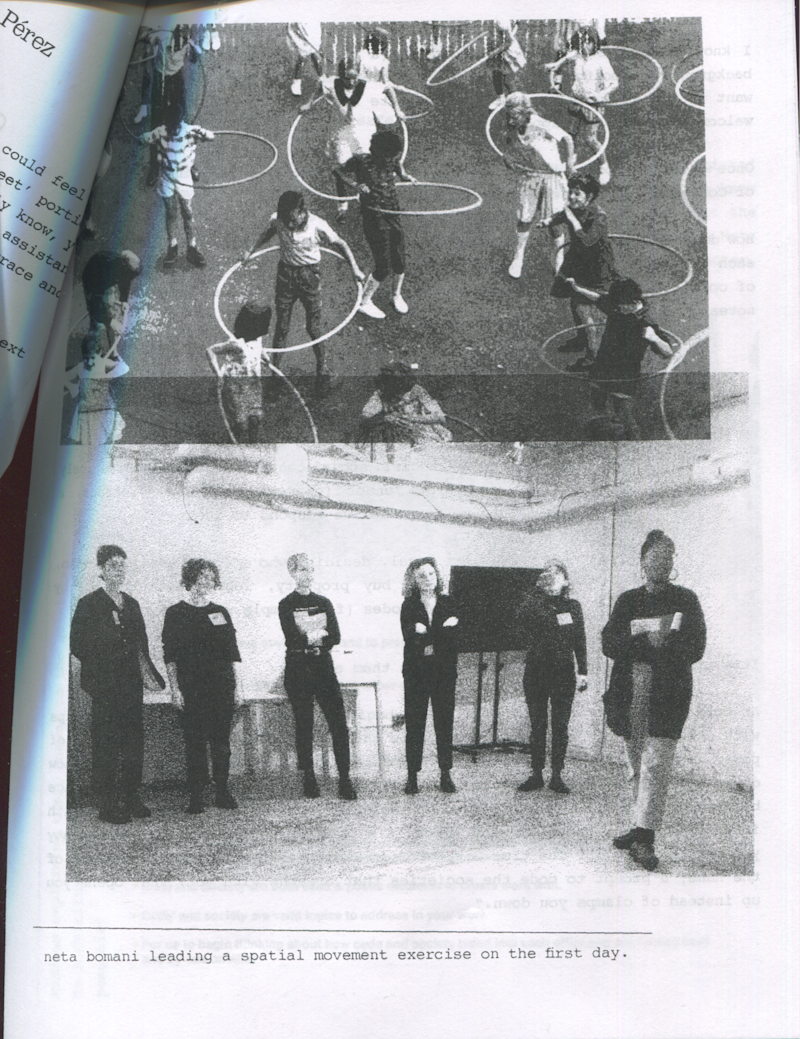
On the first day, we did this spatial movement exercise, and one of the questions that I asked was whether or not computers would be a necessary part of the future. What do you think about that question now?
Andreas: Yes. But something that quite a few people brought up at the time was having a larger definition of what a computer is and what computation is. I’ve never really been into the robot-overlord scenario. What I think is much more likely is [that] we’ll make ‘machines’ more like us, or like ‘biological life,’ if there’s such a line, and we will be taking more of the ‘machines’ into our ‘selves,’ and the line between the two will be really difficult to draw. I think the world that I would like to be a part of is one where that is an opportunity for imagining new liberatory relations instead of continuing relations of control and abstraction. So I look forward and want to be a part of building a future in between lines. Care in between lines. Please give me your fungal nano machines, I’m here, I’m ready.
Eliseo: I have a new–or renewed–intimacy with my devices lately. You know, just being here in this space and thinking about what it can provide, the possibilities of engaging with each other in human, honest, open, healthy, loving ways, and also as a tool to let us be more the way we want to be. And to be thinking about how we might change our physical body, and that being something that is beautiful and not scary.
You know, when you ask this question about whether computers are going to be inevitable in the future, whether they’re still going to be around, it’s kind of scary to think about. Because who’s gonna be creating this stuff? In the future, I don’t still want to be on Instagram and have the same owner running it and the same group of people making decisions. Seven years from now, we’ve created social media for us, right? That’s sort of the move for me. Occupying space, and being social, communicating.
Tina: I feel like computers are for sure going to be a part [of the future]. I definitely think they’re going to be biological; It’s already fascinating to think about how there’s birth control for women that you get inserted into your arm...I definitely think about how there’s probably going to be some future where we have a small biological chip and it tracks each individual person. And it might be super expensive in the beginning so only the rich can afford it. I’m really interested in what technology will look like seven years from now democratically, and what is happening to our electronic waste, and to our technology as it goes [through] socioeconomic levels in the economy in the States, but also how that translates internationally. You can’t really ignore that when you think about the future.
Eliseo: One of my biggest wishes is more transparency. One thing I appreciate about SFPC and being here is how transparent everyone is about their decision making, and how [there’s] an invitation for everyone to come and have questions and explore, but also have pushback about why things are happening. That’s the way it should be—that’s justice, that’s right. We don’t get that in our daily jobs, we don’t get that sometimes at home, we very rarely get that in institutions.
Tina: I’m hoping that future technology will also look like new structures of governance. When I think about marriage in the future—I’m DTM, down to get married, but also totally fine if I don’t get married—but if I were to do that, it would look like an equal partnership and not a hierarchical structure. And I think about if companies were run by their boards instead of a CEO. Why is there any one person in power? What’s up with that? Why are there not more equalized forms of government? You’d have thought that was a form of technology we could have been developed by now, right?
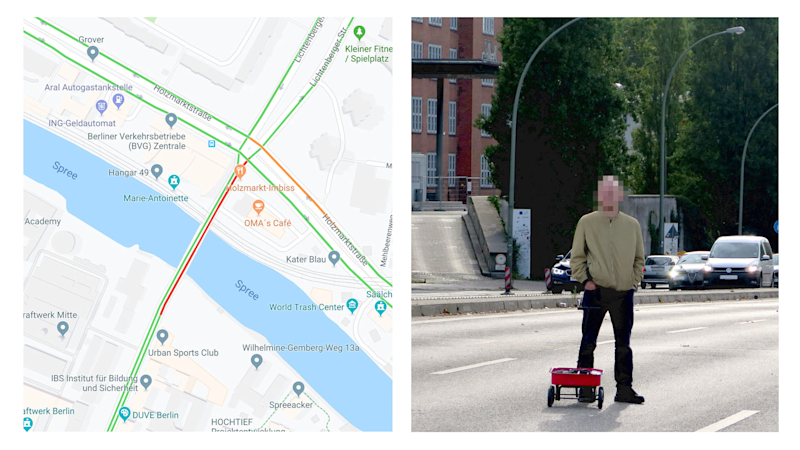
Andreas: That’s something we have the means for, even in a sort of pre-digital sense. It doesn’t actually have to be technology, or cybernetic—there’s no electric charge going through a relationship, or contract, or agreement—and these are all technologies. So we have everything we need to make these better, more equitable relationships. It’s just that we have these other technologies standing in the way. [laughter]
The current structure works for a particular group of people. So to both of your points, definitely a part of this future technology has to be a dismantling of what exists now. It has to be shifts in power, creating alternating channels and not waiting for groups of people that are profiting from the way the world works now to decide one day that, Oh actually, this might be a better, because they won’t. That was part of what intrigued me and brought me to SFPC, this question of how do I gain skills and critical thinking by not waiting for the powers that be to decide that they want a different world? How can we together take that practice into our own hands and start building that world ourselves? And empower the people we know, or don’t know, who don’t have access to a space like SFPC, to also be a part of that process?
I will throw your question back at you. How do we dismantle? What does that look like?
Andreas: I think part of it is the not-waiting. I love work like what comes out of the Detroit community technology project. People are just going into their communities being like, You’re already programmers? Let’s come together and see what we can make. I feel like that is definitely part of the process. And I feel like it’s almost something that is inevitable. Not in the sense that this sort of utopia is just going to happen, but because the powers that be leave so many people out of the room, there are always already these practices of taking technology into your own hands to make it work for you. Even when people don’t realize that’s what they’re doing.
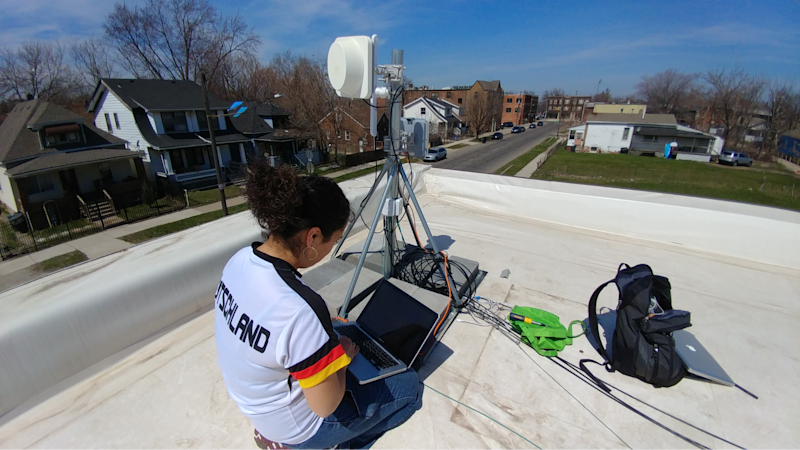
Tina: I've been thinking about this idea of just taking your interests seriously, and taking people seriously, and talking about these things in less hypothetical senses. Like, taking action quickly and soon. One of our classmates brought up yesterday that we need to recognize that we are having a very privileged conversation and that we can't just go out there and say this to anybody. But I actually think that we can go out there and say this to anybody, if you take the idea and their capability seriously. And if you have the patience and time to listen to their story, and maybe help them, you guys might work together to find a common language. It's just about taking the ideas seriously when you can begin to dismantle a fantasy and make it reality.1
Eliseo: I like the idea of empowering or giving words or even having conversations about work that's already been done. Like you mentioned, Andreas, there are people in communities that have been creating, and are ingenious, have been adapting their spaces for generations, you know?
Right now there's all these earthquakes happening in Puerto Rico but my family members are out there just building and putting things back together, not calling anybody else, not waiting for anybody. Just like, Oh, we know how to do this. Let's get together and do it...How can we build on that? How can we grow on that?
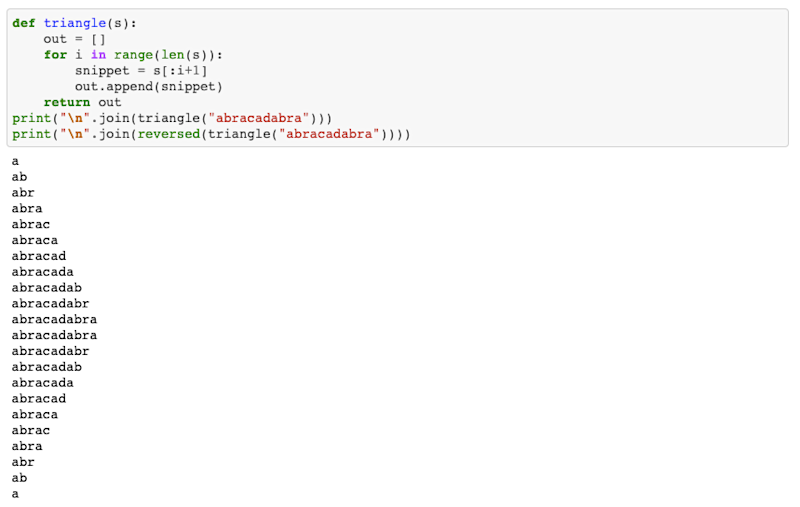
I want to invite some of the people that you care about into the room. Tina you mentioned your brothers, your mom, your father. Eliseo, you mentioned your parents. You mentioned your father, Andreas. I'd like for you all to think about a technology that you would like to give them as a gift.
Eliseo: Some sort of technology of shared experience. I think most of the effort is trying to explain the things that have entered and exited my life on a day to day level, and never being able to have the words to describe it. So if I could give them something that provides a way of... you know, I am sharing more of their experience and they share mine. If we could come away with this realization of understanding and trust and the loss of pretense and dogma, that could be pretty helpful for all parties involved.
Tina: I would give them a...Tina-gotchi.
Andreas: A Tina-gotchi! [laughter]
Tina: And I would convince them to put it on their keychain. I'll have one for [each of] them, so that they're all on my keychain, and I'm carrying them around with me physically every day. When I hold one or when I rub it, I'll feel the essence of my mom or my dad or my brothers. I can squeeze it and maybe a screen will pop up and they can see what I'm seeing for two seconds, or they can hear a voice clip. I started experimenting with sending a friend a voice clip the other day and it was wild.

Eliseo: Like a voice message?
Tina: Yeah, like a voice message. [laughter] Are you doing that already?
Eliseo: So, it's a thing for Hispanics [laughs]. It's a joke that you're mad “Spanish” if you're using your voice memos for everything you do. That's my family, we voice memo everywhere.
Andreas: Oh, it’s not like, a contextless recording. You’re sending them a message.
Tina: Yeah, but it's so intimate because they're whispering in your ear.
Andreas: I love that. I would want some sort of translator. Maybe it's like a chatbot situation: my dad would input a Bible verse and it would return back a quote from some other holy book, or from a science paper, or some other form of knowledge that relates [to it]. Because I feel like that is something that is so central to the way in which they read and understand; it's like their main lens to the point where it is difficult to meet other ways of knowing…. And I could do the reverse, and put in something I just read and it would give me back a Bible verse and it [would give us a way of being like], I just read this thing and it kind of made me think of this verse, do you know it? And we could see that we’re all attempting to practice the same thing here.
1 Tina: I would like to re-write this sentence. I would say, "When you take ideas seriously, you can begin to dismantle a fantasy and make it reality."
Neta Bomani is a worker who engages in visual storytelling, direct action and (anti) art practices through organizing and making archives, writings, prints, zines, circuits and workshops. Neta's work has materialized as an organizer of the Tech Zine Fair, an organizer of the School for Poetic Computation, a member of Stephanie Dinkins Studio and a participator in grassroots organizing against prisons and borders in New York City and beyond.
Are.na Blog
Learn about how people use Are.na to do work and pursue personal projects through case studies, interviews, and highlights.
See MoreYou can also get our blog posts via email